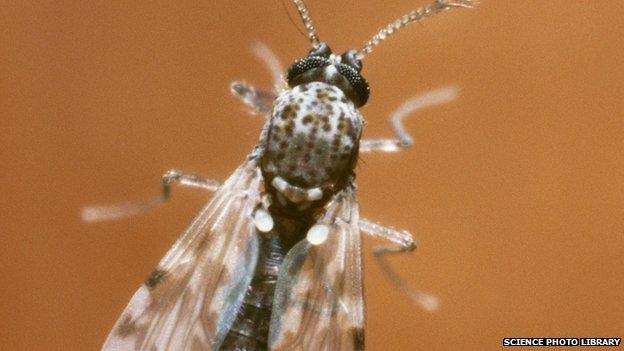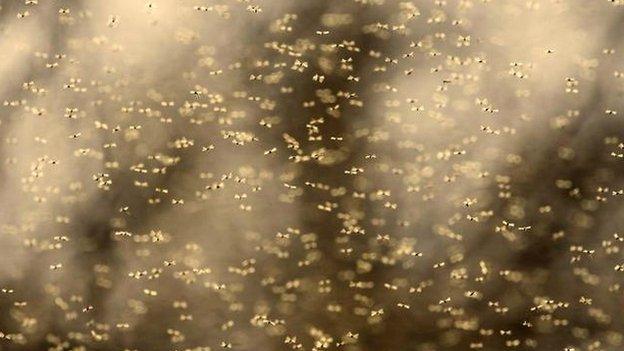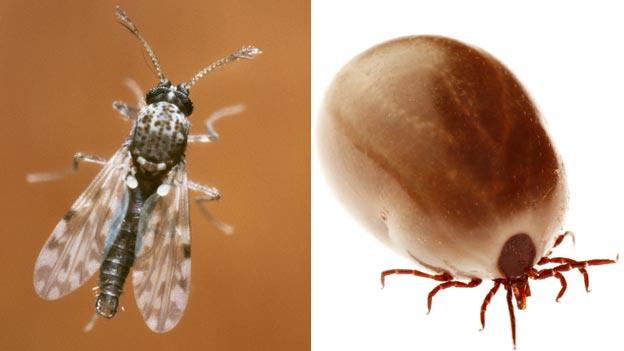Midge trappers sought for Scottish forecast
- Published

People are being asked to trap midges
Volunteers are being sought from across Scotland for this year's Scottish Midge Forecast, external.
More than 100 people are needed for the project running between June and August.
They will be asked to hang up sticky traps to catch midges and submit their results for analysis.
The forecast's Dr Alison Blackwell said she hoped it would be possible monitor a wide range of habitats across the country.
She said the forecast combined current and historical biting midge population data with weather forecast information to provide five-day forecasts for key midge hot spots across Scotland.
"However, midge populations can vary significantly over a very localised scale and this new innovation should help provide a clearer picture of what is happening on a day-to-day basis," she said.
The hope is that should make the forecast more accurate.


Huw Williams, BBC Scotland News
Midgies are officially known by their scientific name Culicoides impunctatus, but people surrounded by a swarm of them on a still summer's day tend to use much shorter, much harsher names.
It might help to cope if you remember that both as larvae in the soil and as flying adults they play an important role in the ecosystem - working alongside earthworms, and as food for birds.
It's been cold so far this year so midge numbers are low. But the relatively mild winter means many will have survived.
So numbers will explode once the weather warms up.

The traps, along with computer software to calculate the number of midges shown in photographs submitted by the volunteers, will be paid for from a £22,441 grant by Innovate UK to Dundee-based APS Biocontrol.
The system could be developed in the future to alert farmers to possible risks from midge-transmitted diseases that affect livestock, including bluetongue virus and Schmallenberg virus.
Dr Blackwell said: "Ideally we would like to involve a mix of areas, including those popular with tourists.
"We are also keen to hear from the farming community, given the potential impact of biting midges on livestock."
People interested in volunteering can email midgewatch@apsbiocontrol.com for further information.
It is claimed the forecast, which is now in its 11th year, is accessed by over 50,000 people a year either online, or via a smart phone app.
- Published9 July 2013
